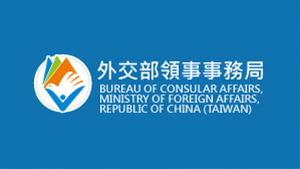Permits that allow Taiwanese employers to hire migrant workers will be automatically extended three months in the wake of the entry ban on foreign nationals into Taiwan, labor authorities said in a statement Tuesday.
Permits that allow Taiwanese employers to hire migrant workers will be automatically extended three months in the wake of the entry ban on foreign nationals into Taiwan, labor authorities said in a statement Tuesday.

On May 17, the Central Epidemic Command Center (CECC) announced that due to the surges in the number of COVID-19 cases in Taiwan and other countries, Taiwan would implement new entry restrictions and measures listed below beginning 00:00 am on May 19 (departure time at the airport of departure).

On April 14, the Central Epidemic Command Center (CECC) reported that COVID-19 continued to spread in Cambodia and the country’s cases were on an upward trend recently, with new infections exceeding the limit of the standard for the CECC’s list of medium-risk countries/regions. Therefore, the CECC will remove Cambodia from its list of medium-risk countries/region, effective immediately.
On March 24, the Central Epidemic Command Center (CECC) reported that local infections became severe in East Timor recently, with multiple cluster infections being reported in the areas outside its capital Dili.
Migrant workers in Taiwan whose contracts are about to expire will be eligible to obtain a six-month extension, the Ministry of Labor’s (MOL) Workforce Development Agency said Wednesday, citing the need to reduce international travel amid the COVID-19 pandemic.
On March 3, the Central Epidemic Command Center (CECC) reported that Australia had met the criteria for CECC’s list of low-risk countries for five weeks and the country loosened epidemic prevention and control measures on February 27. Thus, the CECC has moved Australia to its list of low-risk countries/regions.

The Central Epidemic Command Center (CECC) announced on February 24, 2021, that implementation of the Fall-Winter COVID-19 Prevention Program (2020/12/01-2021/2/28) will be continued until further notice, but that entry regulations will be adjusted. In accordance with the decision, the Ministry of Foreign Affairs (MOFA) will update regulations concerning the entry of foreign nationals into the Republic of China (Taiwan).
On February 24, the Central Epidemic Command Center (CECC) announced that the special conditions for non-R.O.C. nationals to enter Taiwan and the protective measures for non-R.O.C. nationals transiting in the country to follow at Taoyuan International Airport would be restored starting from 00:00 am on March 1 (local time at the flight origin). Related details are listed below.
Taiwan will partially lift restrictions on the entry of foreign visitors starting March 1 and allow shorter quarantine periods for business travelers from countries deemed as being at low or low-to-moderate risk for COVID-19.

On February 24, the Central Epidemic Command Center (CECC) reported that a cumulative total of 137 confirmed COVID-19 cases were reported in Cambodia from February 20 to February 23, and it was determined that cases in the country would continue to rise.